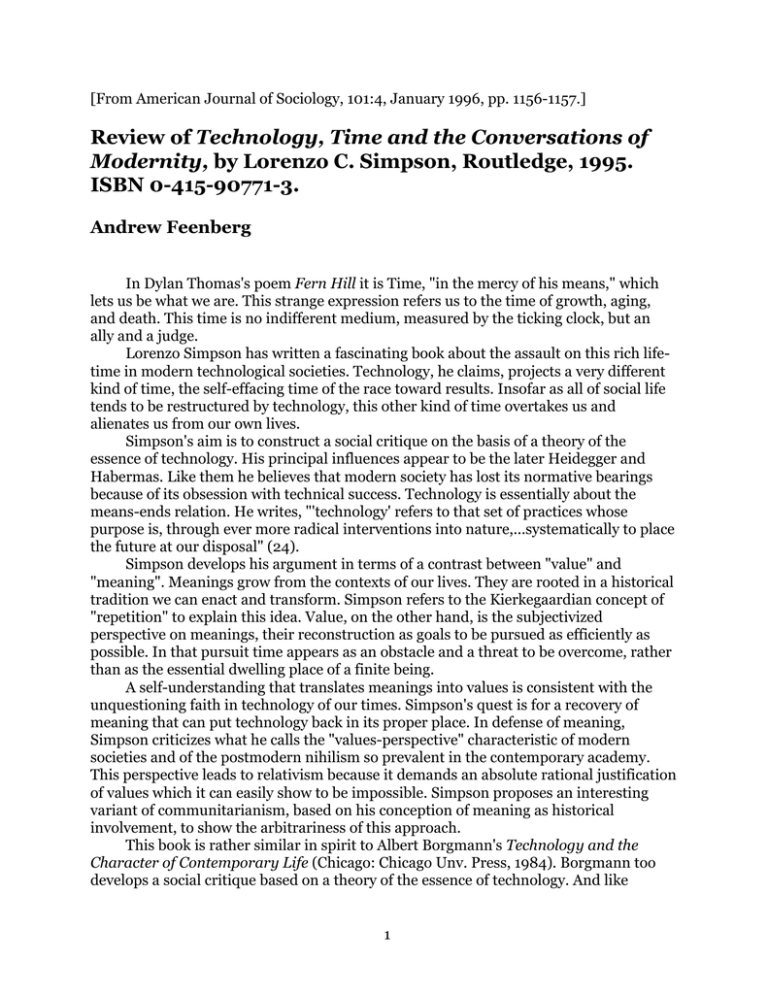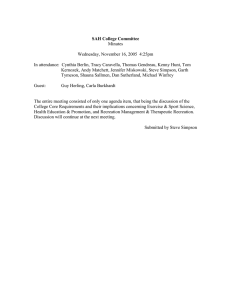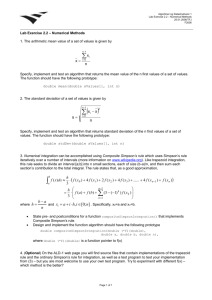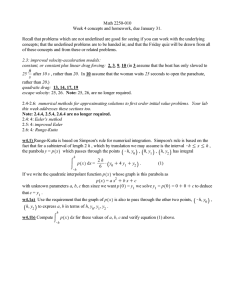Technology, Time and the Conversations of ISBN 0-415-90771-3. Modernity, Andrew Feenberg
advertisement

[From American Journal of Sociology, 101:4, January 1996, pp. 1156-1157.] Review of Technology, Time and the Conversations of Modernity, by Lorenzo C. Simpson, Routledge, 1995. ISBN 0-415-90771-3. Andrew Feenberg In Dylan Thomas's poem Fern Hill it is Time, "in the mercy of his means," which lets us be what we are. This strange expression refers us to the time of growth, aging, and death. This time is no indifferent medium, measured by the ticking clock, but an ally and a judge. Lorenzo Simpson has written a fascinating book about the assault on this rich lifetime in modern technological societies. Technology, he claims, projects a very different kind of time, the self-effacing time of the race toward results. Insofar as all of social life tends to be restructured by technology, this other kind of time overtakes us and alienates us from our own lives. Simpson's aim is to construct a social critique on the basis of a theory of the essence of technology. His principal influences appear to be the later Heidegger and Habermas. Like them he believes that modern society has lost its normative bearings because of its obsession with technical success. Technology is essentially about the means-ends relation. He writes, "'technology' refers to that set of practices whose purpose is, through ever more radical interventions into nature,...systematically to place the future at our disposal" (24). Simpson develops his argument in terms of a contrast between "value" and "meaning". Meanings grow from the contexts of our lives. They are rooted in a historical tradition we can enact and transform. Simpson refers to the Kierkegaardian concept of "repetition" to explain this idea. Value, on the other hand, is the subjectivized perspective on meanings, their reconstruction as goals to be pursued as efficiently as possible. In that pursuit time appears as an obstacle and a threat to be overcome, rather than as the essential dwelling place of a finite being. A self-understanding that translates meanings into values is consistent with the unquestioning faith in technology of our times. Simpson's quest is for a recovery of meaning that can put technology back in its proper place. In defense of meaning, Simpson criticizes what he calls the "values-perspective" characteristic of modern societies and of the postmodern nihilism so prevalent in the contemporary academy. This perspective leads to relativism because it demands an absolute rational justification of values which it can easily show to be impossible. Simpson proposes an interesting variant of communitarianism, based on his conception of meaning as historical involvement, to show the arbitrariness of this approach. This book is rather similar in spirit to Albert Borgmann's Technology and the Character of Contemporary Life (Chicago: Chicago Unv. Press, 1984). Borgmann too develops a social critique based on a theory of the essence of technology. And like 1 Simpson, his critique requires a dualism of technique and culture. Borgmann refers to the first under the concept of the "device paradigm" and the second under the concept of "focal things." This type of dualism is also characteristic of Habermas with his distinction of work and interaction, and Heidegger with his distinction of being and enframing. It seems always to appear where the essence of technology is in question. This is where I have my disagreement with Simpson and the whole tradition to which his book belongs. No doubt he is right that there are some few core properties by which we can distinguish technologies from other types of objects. But Simpson wants to get far too much-a whole social theory-out of these bare abstractions. This, I believe, is only possible if a considerable supply of historical baggage is surreptitiously slipped in. Only then can one hope to get from the excessively abstract notion of the technological means-ends relation to a concrete social critique of the rootlessness of modern life. Simpson is aware of the recent constructivist critique of essentialism and offers arguments in defense of his position. But so far as I can see he merely reiterates the essentialist premise according to which transhistorical properties identify real objects that can be clearly distinguished from the historical context in which they play a role. Significantly, Simpson's defense steers clear of any actual historical case. This, I think, points to the weakness of his approach. He has produced a powerful critique of an attitude toward technology that is indeed prevalent in our society, but he has not shown that that attitude is the truth of real technology as it has existed over the thousands of years of human history and as it may exist in the future. Despite this disagreement, Simpson's book is well worth reading and offers a significant challenge to constructivism. It is not so much his arguments against constructivism that are interesting as the richness of the conception of meaning he proposes. A socially and historically concrete account of technology must be able to incorporate such a conception rather than itself participating in the technological attitude Simpson so effectively criticizes. 2


